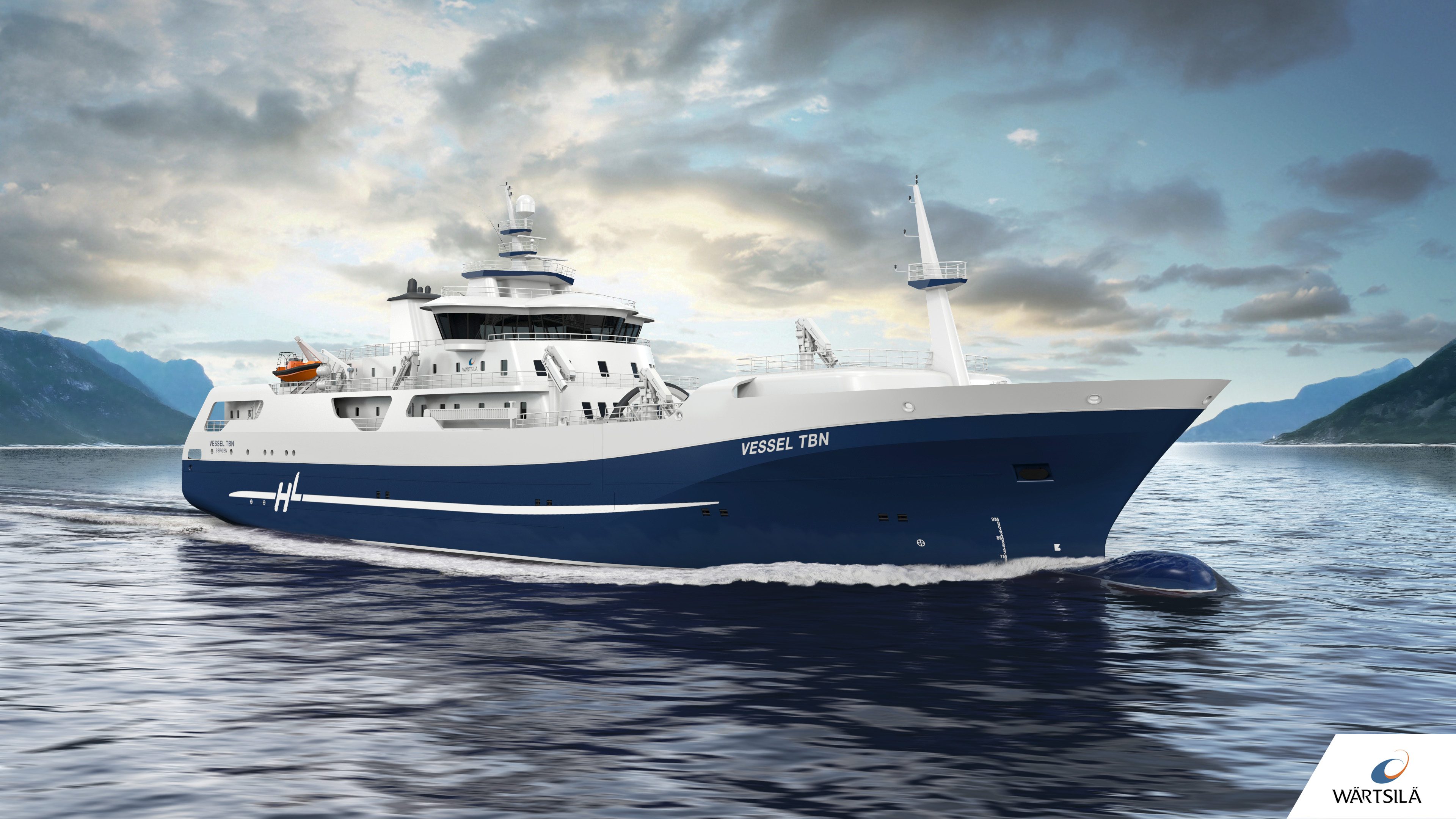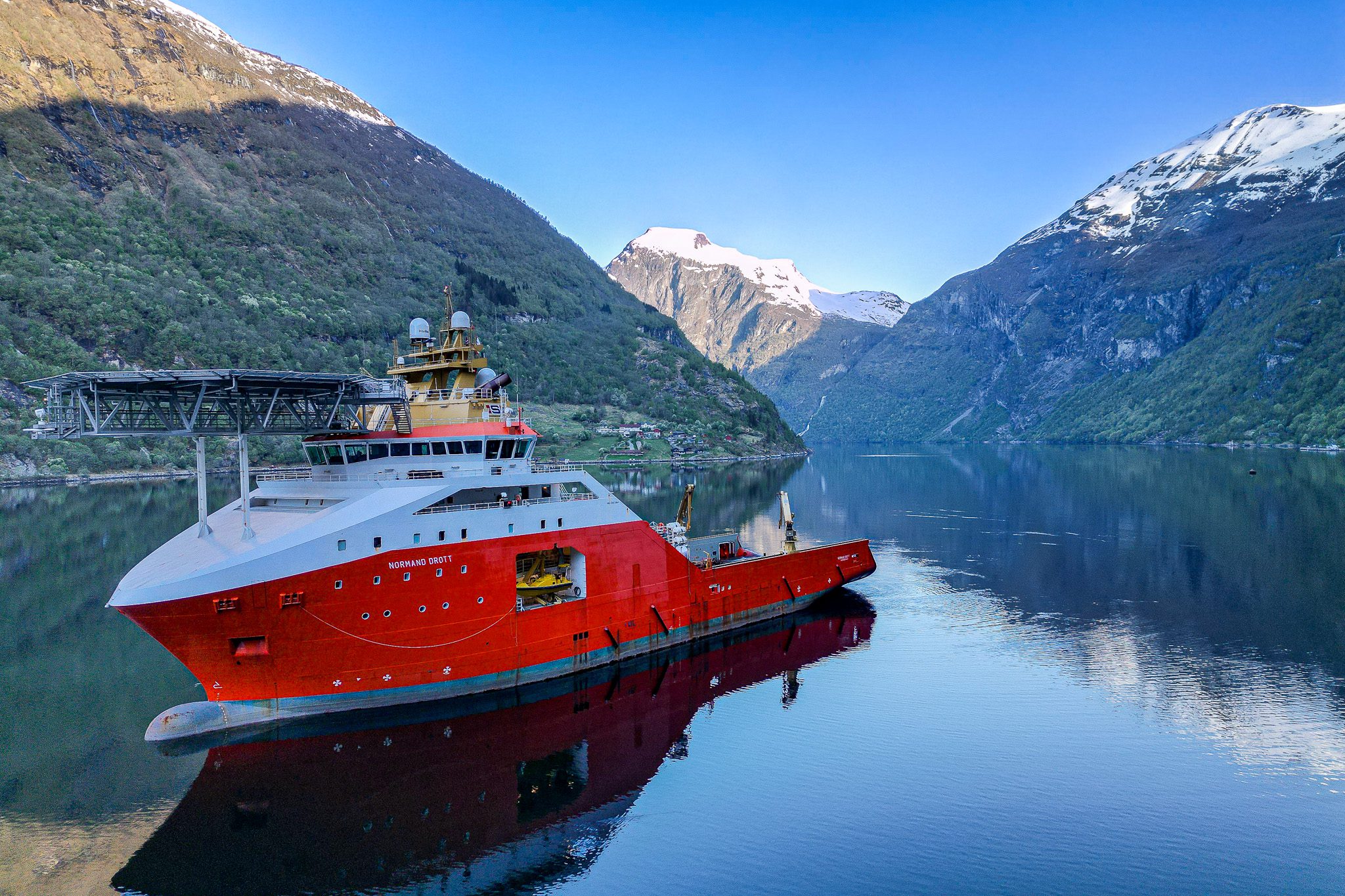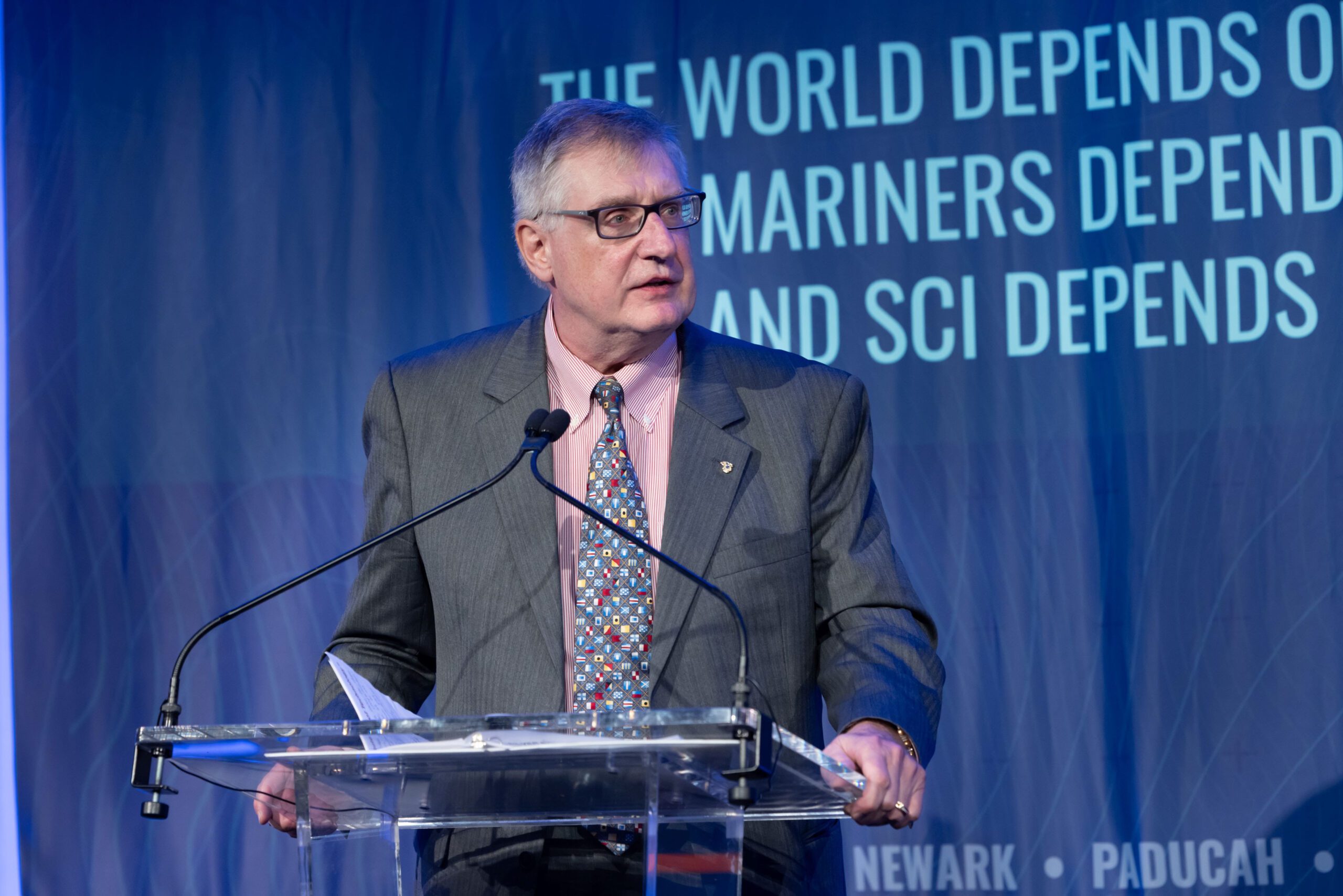The new salmon processing and transportation vessel for Hav Line AS, Norway, is the world’s first vessel of its kind with a hybrid/battery solution.
The technology group Wärtsilä has been contracted to deliver the ship design for a new processing and transportation vessel to be built at the Balenciaga shipyard in Spain on behalf of Hav Line AS of Norway. In addition to the design, Wärtsilä will also supply an integrated solution comprising a 10-cylinder Wärtsilä 31 main engine, auxiliary engines, propulsion machinery, the propulsion remote control system, and the electrical & automation system. The delivery of the Wärtsilä solutions will be during autumn 2017 and the vessel is scheduled for delivery in summer 2018. The order was recorded in Wärtsilä’s order book in the fourth quarter of 2016.
Notable environmental gains are made possible by a Wärtsilä hybrid propulsion solution supported by batteries, which results in very low emission levels. This is the world’s first processing and transportation vessel for the fish farming industry to utilise this solution. By absorbing most of the engine’s load fluctuations and vessel load variations through batteries, the engines can be operated close to its optimum design point, thereby providing the highest level of efficiency, which in turn minimises the exhaust emissions.
The Wärtsilä design is tailor made to the customer’s specifications. During the development phase of the project, Wärtsilä acted as the owner’s consultant to ensure an environmentally sound and functionally effective solution. The vessel’s hybrid propulsion machinery has the PTI/PTO (power take-in/ power take-off) powered by batteries, and is combined with the very fuel efficient Wärtsilä 31 main engine. The environmentally sustainable hybrid battery configuration is new for this type of vessel.
“The fish farming industry, like other marine industry sectors, is seeking better ship designs and greater efficiencies that reduce overall operating costs and lessen the environmental impact. Wärtsilä is proud to have been selected for this project that introduces the world’s first hybrid propulsion system for this kind of vessel,” says Riku-Pekka Hägg, Vice President, Wärtsilä Ship Design.
“We very much appreciate Wärtsilä’s support in designing a vessel that meets our operational and environmental requirements,” says Jon Hinder, Chairman of the board, Hav Line Gruppen AS.
Wärtsilä’s integrated solution includes the initial, basic, and detailed ship design, a 10-cylinder Wärtsilä 31 main engine, a Wärtsilä 2-speed gearbox, a Wärtsilä controllable pitch propeller (CPP) including the HP propeller nozzle, stern tube seals and bearings, the Wärtsilä ProTouch propulsion remote control system, two 9-cylinder Wärtsilä 20 auxiliary engines, and the electrical & automation system including a hybrid battery PTI/PTO package.
The Wärtsilä 2-speed gearbox enables lower propeller speeds and optimised propulsion efficiency during transit, while still using the main engine to power the shaft alternator. This results in lower fuel costs, both for production and production of electrical power. The custom designed CPP propeller is of Wärtsilä’s successful G-hub configuration and is combined with the HP nozzle. This provides maximum reliability and efficiency and is a popular choice for vessels with this operational profile.
Following its introduction in 2015, the Wärtsilä 31 was recognized the world’s most efficient 4-stroke diesel engine by Guinness World Records. The main features of the Wärtsilä 31 engine are its exceptionally low fuel consumption and minimal maintenance requirements. For this engine the main service is required only after 32,000 running hours, whereas alternative standard marine engines require maintenance after 24,000 running hours. This level of propulsion efficiency, combined with the Wärtsilä design, will produce notable operational cost savings.

 Join The Club
Join The Club











